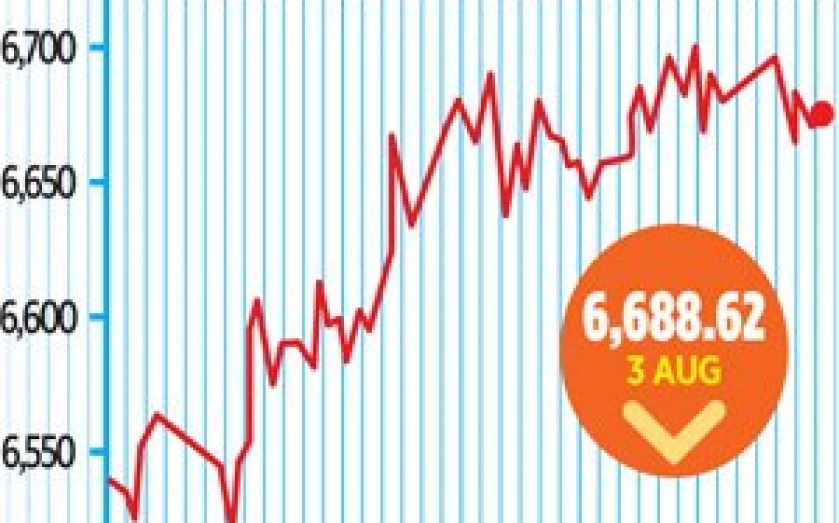Commodity and oil heavy FTSE dragged down – London Report

DATA showing an uptick in UK manufacturing growth in July did little to boost share prices yesterday, as mining stocks were impacted by weaker-than-expected manufacturing figures out of China.
Global oil prices also fell yesterday, with benchmark brent crude dropping to below $50 per barrel, which pulled oil companies’ share prices downward.
The FTSE 100, which is more skewed towards energy and natural resources than many indexes in Europe, closed down 0.1 per cent, with the FTSE 350 mining index down over three per cent.
The pan-European FTSEurofirst 300, meanwhile, was up 0.6 per cent.
UK stocks have underperformed Europe by some 14 percentage points so far this year.
Credit Suisse downgraded UK stocks last week, citing the risk of an interest-rate increase as well as the commodities sell-off.
“It has been quite relentless for mining stocks,” said Sanlam Securities’ head of execution, Mark Ward.
“The London market is quite heavy on commodities stocks and that is not helping things,” he added.
Data showing UK manufacturing growth picked up in July but new orders grew at the slowest pace in nearly a year did little move share prices.
Mike van Dulken and Augustin Eden at Accendo Markets said yesterday that while disappointing PMI data from China had added to concerns of a deepening slowdown, it “sounds like more stimulus could be on its” way for the world’s second largest economy.
Shares in testing firm Intertek Group jumped more than 11 per cent after it posted an improvement in first-half organic growth and maintained its full-year guidance.
HSBC beat expectations with a 10-per cent rise in first-half profits and an agreement to sell Banco Bradesco for more than $5bn (£3.2bn). Its shares rose 0.3 per cent.
Rolls-Royce rose 5.9 per cent, extending gains from Friday after an announcement that US activist investor ValueAct had taken a 5.4 per cent stake.
Financial-technology company Fidessa fell 16 per cent, however, after warning of greater “headwinds” into 2016 as competition among its financial-sector customers might lead to further closures or mergers.